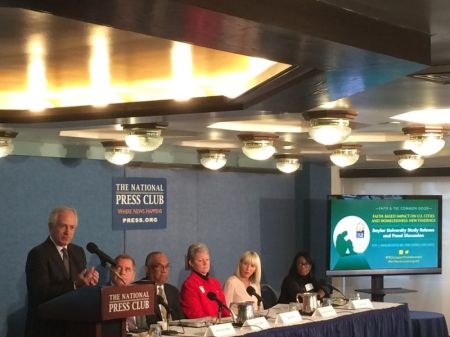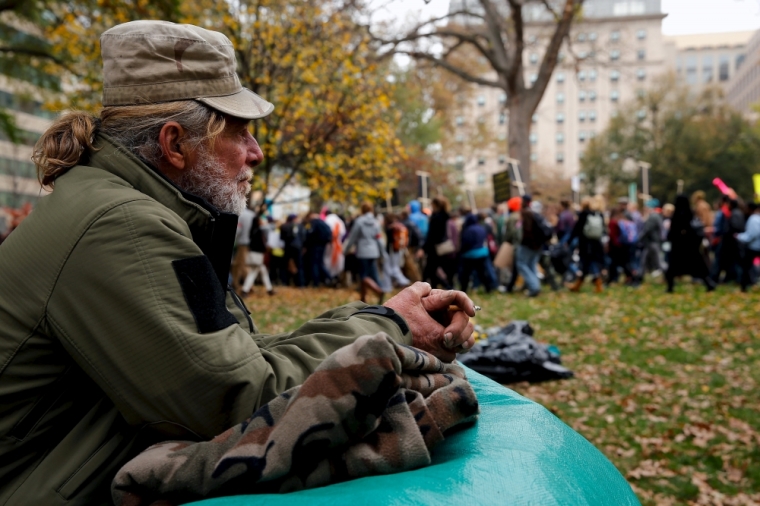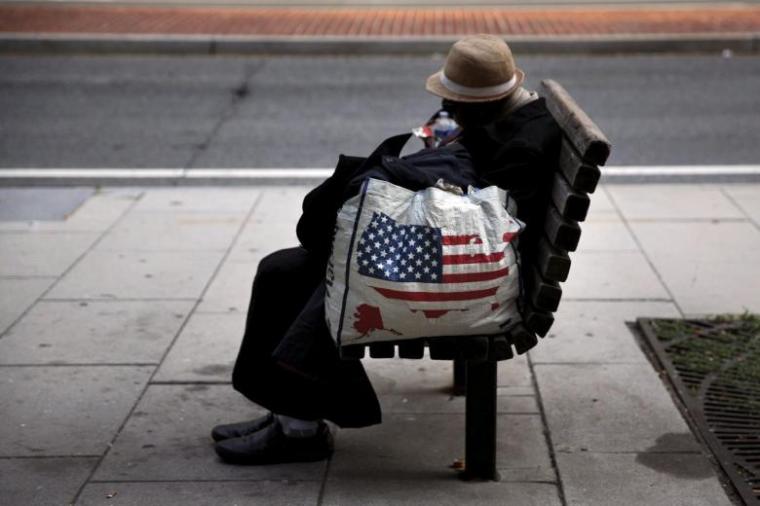Faith-Based Groups Doing Most of the 'Heavy Lifting' to Fight Homelessness: Study
WASHINGTON — Sixty percent of all emergency shelter beds, considered the "safety net of all safety nets," in 11 cities are provided through faith-based organizations. And that is but one remarkable statistic, according to new social science research released this week.
Before a crowd of over 100 people at the National Press Club Wednesday, professor Byron Johnson, director of the Institute for Studies of Religion at Baylor University, together with co-author William Wubbenhorst, unveiled Assessing the Faith-based Response to Homelessness in America: Findings from Eleven Cities, which showcases the socio-economic impact of Christian and other faith-based groups in combating the nation's homeless epidemic.
The study's findings reveal that faith-based organizations lead the way in addressing key causes of homelessness and are pioneering creative, long-term solutions because they are most effective as they address the "whole" person. The scholars calculated that for every one dollar in government spending, taxpayers saved $9.42, a total of $119 million in the 11 cities surveyed, as a result of the vital work faith-based groups do.

Tonier Cain, who was featured in a panel discussion, believes "it's almost impossible to even think that somebody can get healed and do better in their life without faith."
Cain, who lives in Annapolis, Maryland, shared parts of her harrowing story of having lived on the streets for nearly 20 years. During that time, she was arrested 83 times, convicted 66 times, and is a survivor of sexual abuse. She now leads two nonprofit groups, including a global nonprofit organization that provides services for trauma survivors.
"I've been in over 30 programs. Traditional, secular programs. They didn't help. It wasn't until I was really able to embrace faith, my relationship with Jesus, that everything changed in my life," she said.
Cain is the subject of the award-winning film "Healing Neen."
The 11 cities that were surveyed included Atlanta, Baltimore, Denver, Houston, Indianapolis, Jacksonville (Florida), Omaha, Phoenix, Portland, (Oregon), San Diego and Seattle.
Byron said that the study was done in order to bring attention "where it is not getting focus" and to "start a discussion."
"This is a very preliminary study and we would like to do something that drills down much deeper in a lot of cities, do some systematic evaluation," he said. "Why is it that the faith-based response is better in some cities than others and how can we improve it?"
During the panel discussion, rescue mission leaders who are on the front lines serving the most vulnerable frequently discussed the tension that sometimes occurs between government agencies willing to offer financial assistance to faith-based social service providers in exchange for the groups' removal of all things faith-based, like Bibles. Put simply, the panelists concluded, faith-based organizations are without question the backbone of poverty relief and services to the homeless but are not willing to make such compromises.
CP asked Byron why the government seems to view faith as something detrimental such that it insists that in order to receive financial backing, groups must essentially strip away the religious dimension from their operations.
"Things have changed in the country. I think most people would acknowledge that we have seen a lot of changes in the last 20 years. There's plenty of people in the community who think their freedoms are under attack today and so there's a sense in which people are even afraid to make a pro-family statement for fear that they might be called a bigot," Byron explained.
But it is also a matter of to whom one speaks, he added.
"If you go to Houston and you talk to people who work in government and you ask them 'Who is doing the heavy lifting?' They'll tell you 'it's the faith-based groups' and they refer people [to them]. Why? Because they've been there for 60 years and they trust them. They've built these relationships but that doesn't mean that there still isn't tension."
"And I think there are these misconceptions about the faith community, that they don't play well with other groups. And I think our preliminary study shows that's a myth. They are ready, but they are not going to give up their faith."
Cain reiterated the short-sightedness of the idea that by spending more money on poverty programs, such problems will be solved.
"If you had given me money and given me a place without my faith, I would have used the money but it would have been for all the wrong things," Cain stated.
But with faith in Jesus, she contended, "your mindset, your thinking changes."
"And you start to want to do better, you strive to do better. Because now you have a purpose, you don't just exist," she said.
Additional panelists included the Rev. Andy Bale, president of Union Rescue Mission in Los Angeles, California; Herb Johnson, president of San Diego Rescue Mission; Janet Miller, vice mayor of Wichita, Kansas; and Brooks Ann McKinney, director of vulnerable populations at Mission Health and Hospitals in Asheville, North Carolina.























